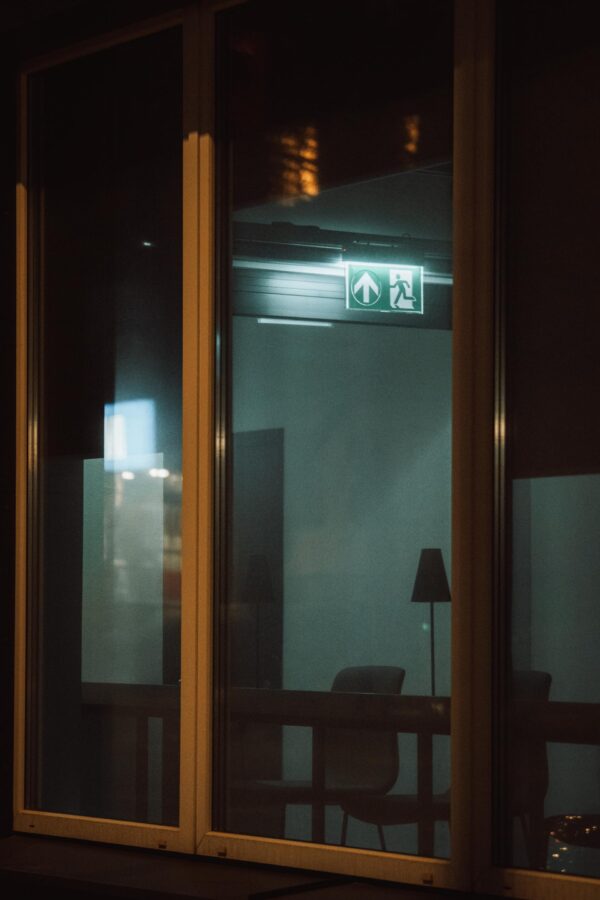
With an abundance of noise pollution and security concerns becoming more pressing than ever, laminated safety glass is now the go-to choice for business owners. Unlike standard glass, laminated glass has been engineered for strength, security, and silence. It’s an innovative material that offers unmatched safety, whether it’s used to strengthen a skyscraper, an airport, or a regular storefront.
If you’re concerned about safety, durability, or excess noise, here’s why you should ditch traditional glass and use this special material instead.
What is laminated safety glass?
Before getting into the benefits, it’s crucial to understand what laminated safety glass is and what makes it unique. It’s not your average glass, but it’s more than just a stronger material. Laminated safety glass is made from two or more layers of glass bonded together with a plastic interlayer. This interlayer maintains the integrity of the glass by preventing shards from flying if it breaks. Typically, the plastic layer is made from polyvinyl butyral (PVB) or ethylene-vinyl acetate (EVA). However, there are stronger options on the market.
Unlike PVB – a thermoplastic resin – SentryGlas is made from ionoplast polymer technology, producing a clearer interlayer that is five times stronger and up to 100 times stiffer than conventional laminating materials. This is considered an industry standard, and is a great choice when it’s an option.
Because laminated glass sheets are made under extreme heat and pressure, the interlayer melts, creating a stronger, unified pane of glass. This process makes the glass impact-resistant, flexible in extreme temperatures, and gives it sound dampening properties.
Who benefits from laminated safety glass?
Laminated glass is the go-to material for companies that want to offer privacy, security, and safety without sacrificing style. Some common uses include:
- Balcony barriers
- Entry ways
- Home studios and media rooms used for music
- Windows
- Sliding glass doors
- Separators
Thanks to building codes that often require safety glass, it’s common to find laminated glass in the following buildings:
- Law firms
- Medical offices
- Corporate headquarters
- Showrooms
- Retail businesses
- Airports
- Skyscrapers
- Hospitals
- Hotels
- Lobbies
- Apartments
Security features
Laminated glass is an exceptional material in terms of security. It can withstand strong blows from objects like bats, rocks, and even bullets if it’s thick enough. Even though it can be cracked, it still retains its form, which delays attempts at forced entry. This extra time could be crucial for someone to call for help or for security systems to be initiated.
There are even some laminated glass panels that can withstand explosions, making injury from glass shards less likely. This is the type of laminated glass installed in government buildings, embassies, and high-risk areas.
Safety features
When people realized they needed a stronger solution for buildings prone to hurricane damage, laminated glass was the ideal solution. It holds up even in the worst storms since it’s designed to withstand high winds and impact from flying debris. For coastal areas that require impact-resistant glass to meet building codes, laminated glass is ideal.
In addition to providing safety during a storm, laminated glass is perfect for buildings in areas prone to earthquakes. Even if the glass cracks, it will stay in place, reducing the risk of injury during the quake and evacuation efforts.
Soundproofing with laminated glass
Noise pollution is annoying, and laminated glass can block out both high-frequency and low-frequency sound. The plastic interlayer absorbs and dissipates high-frequencies (like voices and traffic) that come from outside, minimizing vibration transfer into the building. It’s denser than traditional glass, which helps to block low-frequency noises, like music with heavy bass and construction machinery.
In urban environments, you can’t get away from loud sounds, but laminated glass will mute the chaos. For example, restaurants on busy streets benefit from the sound-dampening properties, creating a more peaceful dining experience for patrons.
Businesses close to construction sites, busy streets, train stations, and airports also benefit from laminated glass. It won’t completely eliminate the noise, but just using laminated windows will create a significant drop. Laminated glass is particularly useful for hotels that want to provide guests with a peaceful experience.
Laminated glass is energy-efficient
Some products come with low-emissivity coatings that reduce heat transfer. This will keep your energy bills lower all year round. The heat will stay in during winter and will be kept out during summer, making it easier to control the climate inside the building.
Get strength and peace of mind in one product
Laminated safety glass combines strength, security, and soundproofing all in one pane. This innovative technology offers unbeatable benefits for commercial and residential applications. Whether you’re building a quiet space for customers, tenants, or your own staff, laminated safety glass will give you the peace of mind you need.
 Gearfuse Technology, Science, Culture & More
Gearfuse Technology, Science, Culture & More


